-
 Bitcoin
Bitcoin $84,912.1002
0.22% -
 Ethereum
Ethereum $1,597.4099
0.99% -
 Tether USDt
Tether USDt $1.0000
0.00% -
 XRP
XRP $2.0848
1.56% -
 BNB
BNB $592.5467
0.52% -
 Solana
Solana $138.6661
3.38% -
 USDC
USDC $1.0000
0.02% -
 Dogecoin
Dogecoin $0.1597
3.32% -
 TRON
TRON $0.2416
-1.86% -
 Cardano
Cardano $0.6327
3.32% -
 UNUS SED LEO
UNUS SED LEO $9.2836
0.56% -
 Chainlink
Chainlink $12.7262
1.41% -
 Avalanche
Avalanche $19.2768
1.31% -
 Stellar
Stellar $0.2442
1.08% -
 Toncoin
Toncoin $2.9950
1.32% -
 Shiba Inu
Shiba Inu $0.0...01231
4.65% -
 Hedera
Hedera $0.1668
2.11% -
 Sui
Sui $2.1474
1.41% -
 Bitcoin Cash
Bitcoin Cash $337.5269
2.68% -
 Hyperliquid
Hyperliquid $17.5726
3.68% -
 Polkadot
Polkadot $3.7336
2.05% -
 Litecoin
Litecoin $76.5245
1.70% -
 Dai
Dai $1.0001
0.02% -
 Bitget Token
Bitget Token $4.4585
2.30% -
 Ethena USDe
Ethena USDe $0.9993
0.01% -
 Pi
Pi $0.6558
7.05% -
 Monero
Monero $214.1926
-0.69% -
 Uniswap
Uniswap $5.2567
1.90% -
 Pepe
Pepe $0.0...07325
4.28% -
 OKB
OKB $50.6926
1.82%
What is the handling fee for Bitcoin contract transactions?
Bitcoin contract trading fees vary greatly by exchange, encompassing maker/taker fees for trades and separate withdrawal fees. Understanding these variable costs, including funding rates for perpetual contracts, is crucial for profitability.
Mar 20, 2025 at 05:56 am
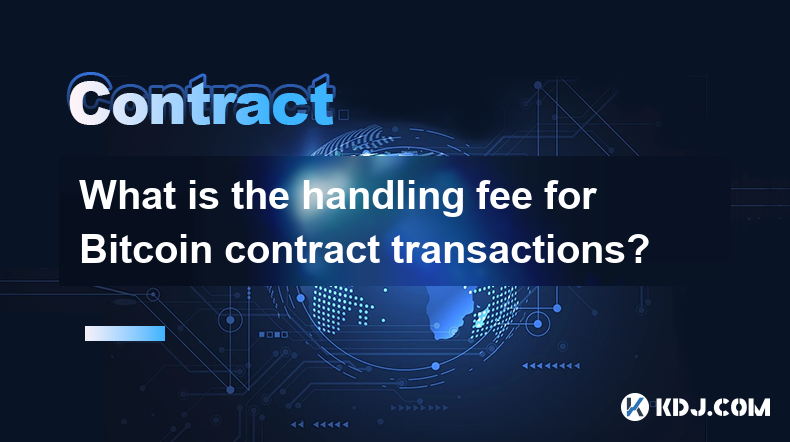
Key Points:
- Bitcoin contract trading involves fees that vary depending on the exchange.
- Fees are typically composed of trading fees (maker and taker fees) and potential withdrawal fees.
- Maker fees are usually lower than taker fees, incentivizing liquidity provision.
- The specific fee structure is determined by the exchange and can change.
- Understanding these fees is crucial for profitable Bitcoin contract trading.
- Additional fees like funding rates for perpetual contracts add complexity.
What is the handling fee for Bitcoin contract transactions?
The handling fee for Bitcoin contract transactions isn't a fixed amount; it's highly variable and depends significantly on the specific cryptocurrency exchange you're using. There's no single universal fee. Instead, you'll encounter a structure involving several potential components.
Understanding the Components of Bitcoin Contract Trading Fees
The core fees you'll generally encounter fall into two main categories: trading fees and withdrawal fees. Let's explore each:
1. Trading Fees: These are charges levied on each trade you execute. Most exchanges employ a maker-taker fee system.
- Maker Fees: These apply when you add liquidity to the order book by placing limit orders that aren't immediately filled. Maker fees are usually lower than taker fees, as they benefit the exchange by improving liquidity.
- Taker Fees: These apply when you take liquidity from the order book by placing market orders that immediately execute against existing limit orders. Taker fees are generally higher because they directly consume existing liquidity.
The exact percentages for maker and taker fees vary considerably across exchanges. Some might charge 0.02% for takers and 0.01% for makers, while others might have different rates entirely. Always check the specific fee schedule of your chosen exchange before engaging in trading.
2. Withdrawal Fees: These fees apply when you withdraw your Bitcoin (or other cryptocurrencies) from the exchange to your personal wallet. These fees are typically charged by the exchange to cover their processing costs and network fees. The amount varies depending on the exchange and the network congestion at the time of withdrawal. Higher network congestion leads to higher transaction fees.
Beyond Basic Trading Fees: Funding Rates
If you're trading Bitcoin perpetual contracts, another fee comes into play: the funding rate. Perpetual contracts are designed to mimic the behavior of a futures contract but without an expiration date. To maintain price parity with the underlying spot price of Bitcoin, funding rates are periodically applied.
These funding rates are adjustments to balance the demand and supply between long and short positions. If there's a significant imbalance, positive or negative funding rates are applied to incentivize rebalancing. Positive funding rates are paid by longs to shorts, and vice versa. This means that if you hold a long position in a contract with a positive funding rate, you will pay a fee. Conversely, if you hold a short position, you'll receive payment.
Factors Influencing Bitcoin Contract Trading Fees
Several factors influence the actual fees you'll pay:
- Exchange: The exchange you choose is the primary determinant of your fees. Each exchange sets its own fee structure.
- Trading Volume: Some exchanges offer tiered fee structures, where higher trading volumes lead to reduced fees.
- Payment Method: The method you use to deposit funds might also influence fees, although this is less common with cryptocurrency exchanges.
- Market Conditions: Network congestion on the Bitcoin blockchain can directly impact withdrawal fees, making them higher during periods of high activity.
Navigating the Fee Landscape
To minimize fees, consider the following:
- Compare Exchanges: Research various exchanges and compare their fee schedules before making a choice.
- Utilize Maker Orders: If possible, prioritize using limit orders (maker orders) to reduce your trading fees.
- Optimize Withdrawal Timing: Avoid withdrawing during periods of high network congestion to keep withdrawal fees low.
- Read the Fine Print: Always thoroughly review the terms and conditions of your chosen exchange to fully understand all associated fees.
Frequently Asked Questions (FAQs)
Q: Are Bitcoin contract trading fees fixed?
A: No, Bitcoin contract trading fees are not fixed. They vary based on the exchange, the type of order (maker or taker), trading volume, and withdrawal network conditions.
Q: How can I find the fee schedule for a specific exchange?
A: Most cryptocurrency exchanges clearly outline their fee schedules on their websites, usually within a section dedicated to fees, trading fees, or help/support.
Q: What are funding rates, and why are they important?
A: Funding rates are periodic payments or receipts in perpetual contracts that help maintain price parity with the underlying asset. They are crucial for understanding the total cost of holding a long or short position.
Q: Are there any ways to reduce Bitcoin contract trading fees?
A: Yes, you can reduce fees by choosing exchanges with lower fees, using maker orders when possible, optimizing withdrawal timing, and trading during periods of lower network congestion.
Q: Do all exchanges use a maker-taker fee system?
A: While the maker-taker system is prevalent, some exchanges may use different fee structures. It's always best to check the specific fee schedule of your chosen exchange.
Disclaimer:info@kdj.com
The information provided is not trading advice. kdj.com does not assume any responsibility for any investments made based on the information provided in this article. Cryptocurrencies are highly volatile and it is highly recommended that you invest with caution after thorough research!
If you believe that the content used on this website infringes your copyright, please contact us immediately (info@kdj.com) and we will delete it promptly.
- Ethena Labs Unveils Converge, a New Layer-1 Blockchain Targeting Tokenized Real-World Assets
- 2025-04-19 12:20:14
- FBI Releases Five Warnings to Help Protect Investors in the Cryptocurrency Space
- 2025-04-19 12:20:14
- Today, the Official Trump ($TRUMP) meme coin tokens have been unlocked, sparking panic among investors.
- 2025-04-19 12:15:14
- Dogecoin (DOGE) Price Prediction: Will the Original Memecoin Reach $1 by Late Summer 2025?
- 2025-04-19 12:15:14
- Resilience is a Distinct Attribute of Solana
- 2025-04-19 12:10:13
- Astar Network Adjusts Its Token Issuance Model to Stabilize APY and Reduce Inflation
- 2025-04-19 12:10:13
Related knowledge

How does Tail Protection reduce the loss of liquidation?
Apr 11,2025 at 01:50am
Introduction to Tail Protection in CryptocurrencyTail Protection is a mechanism designed to mitigate the risks associated with liquidation in cryptocurrency trading. Liquidation occurs when a trader's position is forcibly closed by the exchange due to insufficient margin to cover potential losses. This often happens in leveraged trading, where traders b...
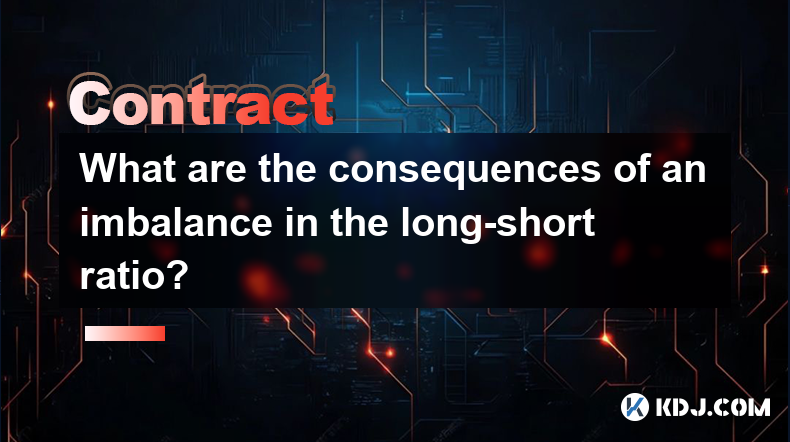
What are the consequences of an imbalance in the long-short ratio?
Apr 13,2025 at 02:50pm
The long-short ratio is a critical metric in the cryptocurrency trading world, reflecting the balance between bullish and bearish sentiments among traders. An imbalance in this ratio can have significant consequences on the market dynamics, affecting everything from price volatility to trading strategies. Understanding these consequences is essential fo...
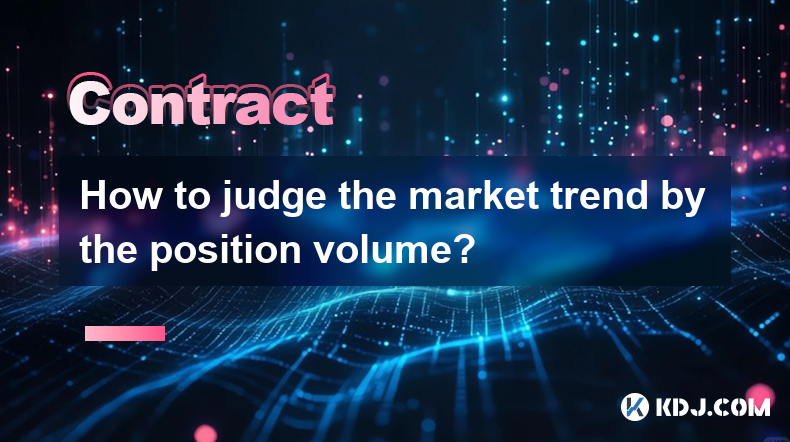
How to judge the market trend by the position volume?
Apr 11,2025 at 02:29pm
Understanding how to judge the market trend by position volume is crucial for any cryptocurrency trader. Position volume, which refers to the total number of open positions in a particular cryptocurrency, can provide valuable insights into market sentiment and potential price movements. By analyzing this data, traders can make more informed decisions ab...

Why does a perpetual contract have no expiration date?
Apr 09,2025 at 08:43pm
Perpetual contracts, also known as perpetual futures or perpetual swaps, are a type of derivative product that has gained significant popularity in the cryptocurrency market. Unlike traditional futures contracts, which have a fixed expiration date, perpetual contracts do not expire. This unique feature raises the question: why does a perpetual contract ...
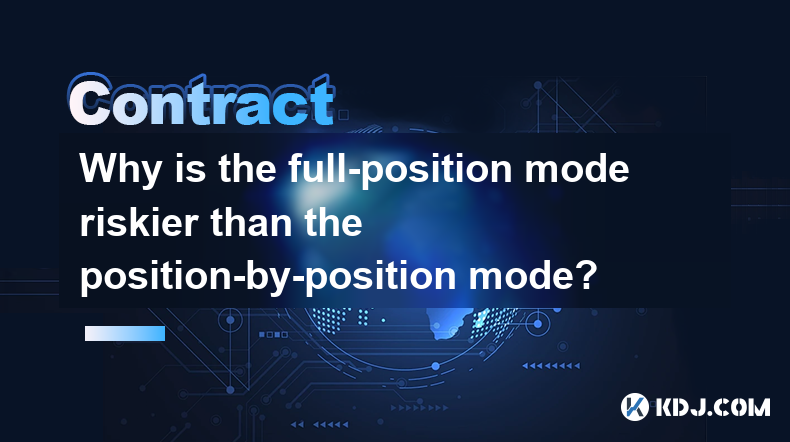
Why is the full-position mode riskier than the position-by-position mode?
Apr 13,2025 at 03:42pm
Why is the Full-Position Mode Riskier Than the Position-by-Position Mode? In the world of cryptocurrency trading, the choice between full-position mode and position-by-position mode can significantly impact the risk profile of a trader's portfolio. Understanding the differences between these two modes is crucial for making informed trading decisions. Th...
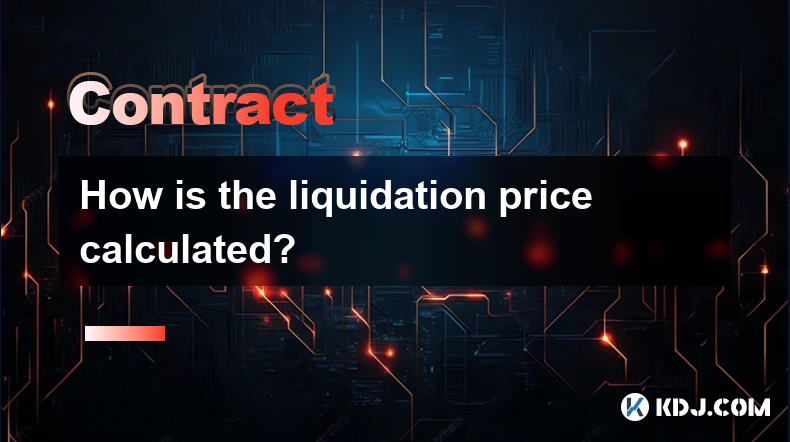
How is the liquidation price calculated?
Apr 12,2025 at 01:35am
Introduction to Liquidation PriceLiquidation price is a critical concept in the world of cryptocurrency trading, particularly when dealing with leveraged positions. Understanding how this price is calculated is essential for traders to manage their risk effectively. The liquidation price is the point at which a trader's position is forcibly closed by th...

How does Tail Protection reduce the loss of liquidation?
Apr 11,2025 at 01:50am
Introduction to Tail Protection in CryptocurrencyTail Protection is a mechanism designed to mitigate the risks associated with liquidation in cryptocurrency trading. Liquidation occurs when a trader's position is forcibly closed by the exchange due to insufficient margin to cover potential losses. This often happens in leveraged trading, where traders b...

What are the consequences of an imbalance in the long-short ratio?
Apr 13,2025 at 02:50pm
The long-short ratio is a critical metric in the cryptocurrency trading world, reflecting the balance between bullish and bearish sentiments among traders. An imbalance in this ratio can have significant consequences on the market dynamics, affecting everything from price volatility to trading strategies. Understanding these consequences is essential fo...

How to judge the market trend by the position volume?
Apr 11,2025 at 02:29pm
Understanding how to judge the market trend by position volume is crucial for any cryptocurrency trader. Position volume, which refers to the total number of open positions in a particular cryptocurrency, can provide valuable insights into market sentiment and potential price movements. By analyzing this data, traders can make more informed decisions ab...

Why does a perpetual contract have no expiration date?
Apr 09,2025 at 08:43pm
Perpetual contracts, also known as perpetual futures or perpetual swaps, are a type of derivative product that has gained significant popularity in the cryptocurrency market. Unlike traditional futures contracts, which have a fixed expiration date, perpetual contracts do not expire. This unique feature raises the question: why does a perpetual contract ...

Why is the full-position mode riskier than the position-by-position mode?
Apr 13,2025 at 03:42pm
Why is the Full-Position Mode Riskier Than the Position-by-Position Mode? In the world of cryptocurrency trading, the choice between full-position mode and position-by-position mode can significantly impact the risk profile of a trader's portfolio. Understanding the differences between these two modes is crucial for making informed trading decisions. Th...

How is the liquidation price calculated?
Apr 12,2025 at 01:35am
Introduction to Liquidation PriceLiquidation price is a critical concept in the world of cryptocurrency trading, particularly when dealing with leveraged positions. Understanding how this price is calculated is essential for traders to manage their risk effectively. The liquidation price is the point at which a trader's position is forcibly closed by th...
See all articles























































































